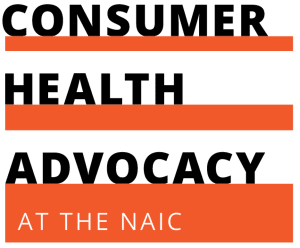MILWAUKEE, WI – On March 23, 2018, a group of consumer representatives to the National Association of Insurance Commissioners (NAIC) released a new report on the risks of health coverage that does not comply with the Affordable Care Act’s consumer protections. The report discusses concerns about association health plans and short-term plans—both of which would expand under recently proposed federal rules—as well as health care sharing ministries and transitional plans. Oversight by state insurance departments is critical to protecting consumers and states’ markets from the fallout these plans can cause, particularly given the repeal of the individual mandate penalty beginning in 2019, which will contribute to higher premiums and market instability.
The report, Non-ACA-Compliant Plans and the Risk of Market Segmentation: Considerations for State Insurance Regulators, was written by Christina Goe, a widely respected expert on state and federal insurance regulation and the former General Counsel of the Montana Insurance Department at the Office of the Montana State Auditor. During her tenure in Montana, Ms. Goe served as the chair of the NAIC’s ERISA Working Group and the Market Analysis Procedures Working Group.
“Because association health plans, short-term insurance, health care sharing ministries, and various types of limited benefit health coverage have been available in the health insurance market for decades, there is plenty of evidence demonstrating how these products can segment the risk pool,” writes Ms. Goe. “Risk pool segmentation has the obvious effect of driving up premiums in the health plans that protect individuals from health status discrimination.”
“State insurance regulators are the first line of defense when it comes to ensuring that products being sold to their residents offer truly comprehensive, affordable health insurance,” said Sarah Lueck, Senior Policy Analyst at the Center on Budget and Policy Priorities and a consumer representative to the NAIC. “Without action by states, the policies being rolled out in Washington D.C. will destabilize insurance markets that cover millions of individuals and small businesses, undermine protections for people with preexisting health conditions, and make health coverage far less comprehensive and less affordable than it is today.”
Anna Howard, Policy Principal at the American Cancer Society Cancer Action Network and a consumer representative to the NAIC, said, “The alternative coverage options outlined in the report already have or will contribute to higher out-of-pocket costs for individuals and families at a time when many are struggling just to get by. These policies merely shift costs to patients and consumers, while doing nothing to address the underlying cost of care and need for market stability.”
An overview of the report will be provided to state insurance commissioners during the Health Insurance and Managed Care (B) Committee meeting on Sunday, March 25th during the NAIC Spring 2018 National Meeting in Milwaukee, Wisconsin.
The report was commissioned by a group of consumer representatives appointed to the NAIC and members from a wide range of national organizations such as the American Cancer Society Cancer Action Network, the American Heart Association, Consumers Union, Families USA, and the National Alliance on Mental Illness; state-based advocacy organizations such as the Colorado Consumer Health Initiative, Georgians for a Healthy Future, and the North Carolina Justice Center; and academic centers such as Georgetown University.
Support for the report was provided by the Robert Wood Johnson Foundation. The views expressed in the report do not necessarily reflect the views of the Foundation.
Contact Information For more information about Non-ACA-Compliant Plans and the Risk of Market Segmentation: Considerations for State Insurance Regulators, please contact Katie Keith at katie.keith@georgetown.edu or Sarah Lueck at lueck@cbpp.org.
